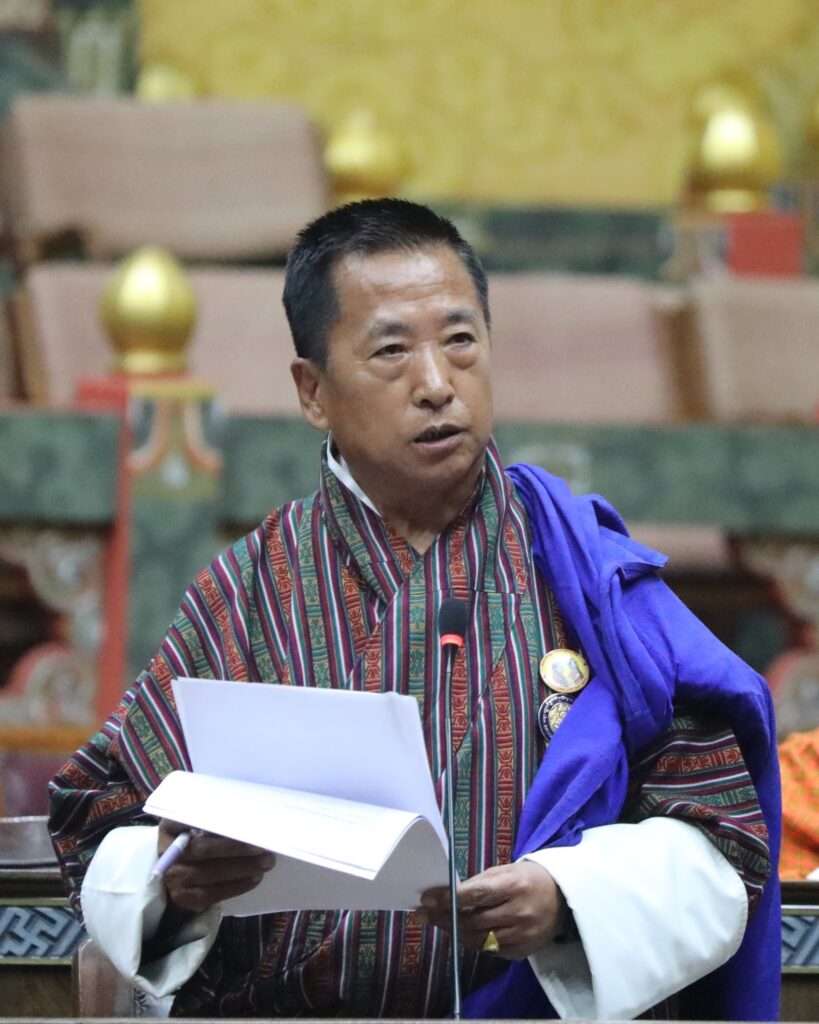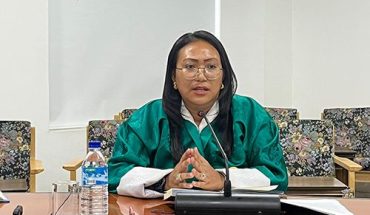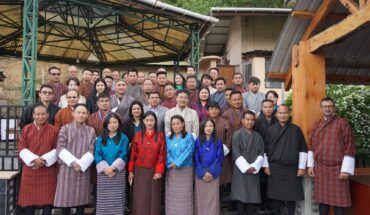
The Prime Minister, however, did not provide a definitive timeline for this transition
DAWA ZANGMO
Thimphu
Prime Minister Tshering Tobgay announced that contract employees and consolidated contract civil servants will now be eligible to receive 15 percent of their Provident Fund (PF) and other related benefits upon completing their tenure.
This new entitlement, however, will come into effect only after receiving formal approval from the Pay Commission.
The announcement was made on the floor of the National Assembly on Monday, following a question raised by Sangay Thinley, Member of Parliament (MP) representing the Khar-Yurung constituency.
MP Sangay Thinley sought clarification on the employment conditions and benefit structures afforded to civil servants employed on a contract basis or as para-regular workers.
His question reflected broader concerns about the financial security and career stability of this segment of the workforce, which has long existed in a space between regular employment and temporary engagement.
In response, the Prime Minister explained that soon after assuming office, the government took up the issue seriously and moved swiftly to establish a high-level review committee. The task force comprised four cabinet ministers, a commissioner, a director, and a secretary from the Ministry of Finance.
The committee was entrusted with the responsibility of reviewing the current status and challenges faced by contract employees, and of exploring avenues to ensure their welfare and recognition.
Based on extensive deliberations and review, the committee prepared a set of recommendations that were subsequently submitted to the Royal Civil Service Commission (RCSC) the apex body overseeing civil service administration in the country.
According to the Prime Minister, the RCSC accepted the proposed recommendations and, importantly, acknowledged the invaluable contributions that contract employees make toward the efficient delivery of government services and administration.
Lyonchhen said, “Recognizing their role in strengthening public service delivery, the RCSC did not just accept the proposed benefits. However, the commission went a step further by extending the contract duration for such employees from the previous three years to five years.”
This change in policy means that contract employees who were earlier seen as short-term contributors to government service will now be treated with parity to permanent civil servants in several aspects.
According to the Prime Minister, under the new arrangement, contract employees will enjoy the same rights and entitlements that are typically granted to regular civil servants. These include eligibility for promotion, access to training programs, provisions for official transfers, and sanctioned leave allowances.
These reforms are expected to impact thousands of government employees currently working under various contractual arrangements across ministries, departments, and public agencies.
As of today, Bhutan has a total of 30,053 civil servants serving in various capacities across the nation. Among them, a notable 5,747 individuals are employed either on regular contract terms or are designated as consolidated civil servants.
Of this number, 17 serve in high-level executive positions, 2,324 are specialists in their respective fields, 2,316 are in professional roles such as education, engineering, and healthcare, and 1,888 serve in supervisory and support functions, handling vital day to day operations.
The Prime Minister further clarified that while these new benefits will bring greater parity and motivation among contract employees, the actual pay structure and financial aspects, tied to the proposed PF provision, will fall within the jurisdiction of the Pay Commission.
The Commission, as per Bhutanese administrative structure, is responsible for reviewing and endorsing compensation packages for all public sector employees, ensuring consistency, affordability, and sustainability.
However, even as the announcement was generally welcomed, concerns regarding inconsistencies in the implementation of contract extension terms across agencies and job categories were raised by members of the National Assembly.
MP Sangay Thinley expressed particular concern over the varied application of contract duration extensions for employees categorized under Elementary Support Personnel (ESP) and General Support Personnel (GSP).
According to the MP, while some individuals in these categories had been granted five-year contract extensions under the new guidelines, others continued to receive only three-year terms.
The discrepancy, he noted, had caused confusion and dissatisfaction among employees, many of whom were uncertain about the rationale behind the differential treatment.
“If the Royal Civil Service Commission and financial institutions such as banks could work together to facilitate loan eligibility for contract employees, it would create real and tangible benefits for our people,” MP Sangay Thinley said, adding that access to financial services such as housing or education loans remains a challenge for contract-based employees due to the temporary nature of their appointments.
Responding to this, Prime Minister explained that while uniformity in contract extensions would be ideal, it is not feasible in practical terms.
“It is important to understand that job roles vary widely across the civil service landscape,” the Prime Minister said. “Contract extensions must be made based on the nature of the job, institutional needs, and the performance of the individual employee. While some roles are in constant demand, others may be project-based or limited in scope.”
He added that the government remains fully committed to fulfilling its promises to the people, particularly those concerning civil service reform and employment stability.
“We understand and acknowledge the concerns regarding disparities,” said the Prime Minister. “But we want to assure the House and the public that our decisions are being made with fairness and accountability in mind.”
The issue of converting all contract employees into para-regular status another key promise made by the current ruling government during its election campaign also featured prominently in the discussions.
Several MPs pressed the PM on the timeline and progress related to this pledge, arguing that a clear roadmap would help boost the morale and job security of thousands of individuals working under contract arrangements.
Para-regular status is considered a hybrid employment category that bridges the gap between contractual and permanent service. While para-regular employees are not granted full civil service status, they do enjoy many of the same benefits and a greater sense of job security.
The transition of existing contract employees into this category is viewed as a necessary step in modernizing Bhutan’s public sector employment framework.
Although the PM did not provide a definitive timeline for this transition, he reiterated the government’s intent to fulfill the commitment during its term.
PM said, “Work is underway to streamline the employment categories in our civil service. We are committed to a transparent and inclusive process that ensures the fair treatment of all government workers.”
Observers say the recent announcement is a reflection of the government’s recognition of the essential role played by contract and consolidated civil servants in the effective functioning of the state machinery.
It also signals a broader shift toward equitable treatment, professional development, and improved conditions for all categories of civil servants.
The reforms, once implemented, are expected to not only improve job satisfaction and employee retention but also enhance the overall efficiency and performance of public institutions across the country.





